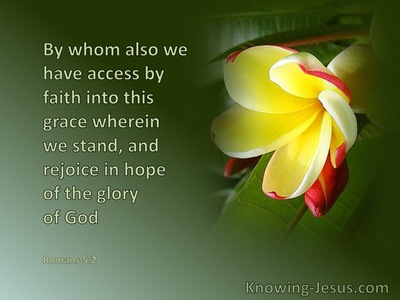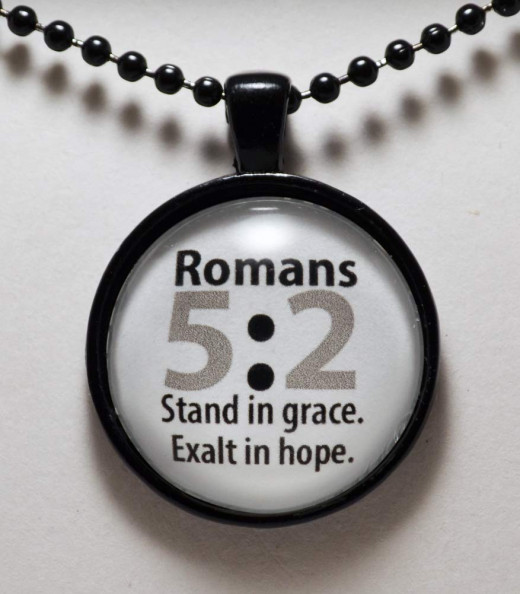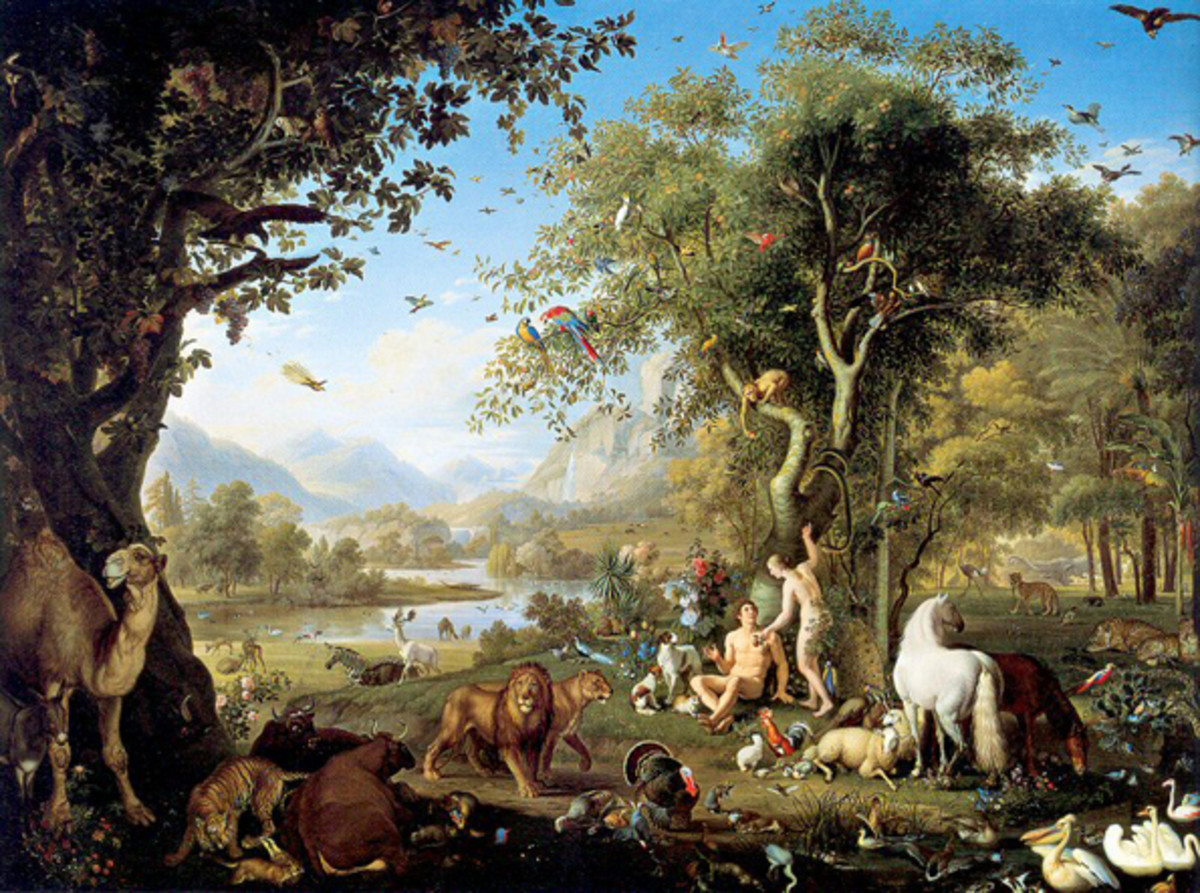What We Rejoice In

Introduction
As individuals differ it is no gain saying that what matters to individuals in the world also differs, therefore, what would make person A to rejoice differs from what would make person B rejoice.
Because of these variations in the world, apostle Paul in his epistle to the Romans says in clear terms one of the things that make believers to rejoice in verse two of chapter five of this epistle.
“By whom also we have access by faith into this grace wherein we stand, and rejoice in hope of the glory of God.” (Rom 5:2)
What Rejoice Means
Rejoice in Hebrew word is “גּוּל גּיל” when Romanized it becomes gı̂yl gûl (phonetic spelling is gheel, gool) while in Greek it is called “καυχάομαι’, with its Romanized form being kauchaomai (pronounced as kow-khah'-om-ahee) and this Greek word is said to be akin to “αὐχέω aucheō (to boast)”. The meaning of both Hebrew and Greek words are to vaunt, boast, glad, joy. (Psa. 16:9)
Rejoice is defined by Oxford Advanced Learner’s Dictionary as to express great happiness about something.
Ellicott in his commentary says, rejoice here means boasting but this boasting is not based on Christian’s own merit it is a joyful and victorious confidence in the future, not only felt, but expressed.

Where we Rejoice
It should be known that humans can express their happiness anywhere, except at the place of mourning where it is not expected to show happiness other than mourning with those who are mourning. But even at such places, on some instances we may see reasons to show happiness though such incidents may be minimal and nigh zero at such places, but it is yet possible.
“A time to weep, and a time to laugh; a time to mourn, and a time to dance;” (Ecc 3:4)
“Rejoice with them that do rejoice, and weep with them that weep.” (Rom 12:15)
It differs and depends on the individual, but for the case of this article the best way for us to show our happiness is by going into the house of the Lord.
“I was glad when they said unto me, let us go into the house of the LORD.” (Psa 122:1)
Having said the above we shall see that Apostle Paul says in the verse under focus that we, believers rejoice in hope. We rejoice in the hope of the promises he has made for us.
Where do we Stand When Rejoicing Like This?
We stand in him, Jesus Christ rejoicing. We stand in Jesus rejoicing in him of what he has done, what he is doing and what he will do. The author says the Joy of the Lord is my strength. We rejoice in him because we know his joy is our strength, the people of the world neither can anything in the world give us such joy as the joy we have possessed in him.
“… for the joy of the LORD is your strength.” (Neh 8:10d)

When do we Rejoice?
We cannot go about smiling, laughing or something when we are not suffering from some forms of psychological disturbances, thus it is stated when we should be joyous. And when we shall be joyous is when something good happens to us, when something intriguing, that we cannot hide happens to us, this time the happiness and the joy would be revealed on our faces. Therefore, the bible says there is time for everything adding also that when people are in happy mood at such instances, we should join them to be happy, felicitating with them.
According to the word of the apostle here, there could be no better answer for the time to rejoice other than what he says in his epistle to the Philippians that “rejoice in the Lord alway: and again I say, Rejoice.” (Php 4:4) we, believers, would rejoice always in the Lord and specifically in the hope we have received in him for the unbelievers do not have such hope.
How we Should Rejoice
It differs and depends on the individual, but for the case of this article the best way for us to show our happiness is by singing praises to the Lord for the great things he has done in our lives, ministries and or families.
“Serve the LORD with gladness: come before his presence with singing.” (Psa 100:2)

Who Gives us This Joy?
Believers are given this special kind of rejoicing by our Lord Jesus Christ who has given himself a ransom for all. But it is not all who accepted the offering that the Lord has offered for mankind, thence it is for those who accepts and receives it. As we equally know that when we want to give someone something and the person refuses or rejects what has been offered we shall not force the person to receive that which we have offered him or her except we have sinister motives, but if we do not have sinister motives we wont force the person to receive it. Now it is those who receive whatever we offer who will have joy in what we have offered. It is same here, God’s is the one who has offered us this kind of joy and we are to be joyous in what has been offered us.
What is This Rejoicing Centered on?
This rejoicing is centered on the hope we have in him. The Psalmist says, some trusts in chariots and horses, but we shall remember the name of the Lord our God. Those who put their trust in those things rejoices in them, but since our trust are not in those but in the living God, we shall rejoice in in the hope that we have in that living God.
“Some trust in chariots, and some in horses: but we will remember the name of the LORD our God.” (Psa 20:7)
Our joy is not centered on those kinds of joy but it is reposed in our Lord and Savior Jesus.
“By whom also we have access by faith into this grace wherein we stand, and rejoice in hope of the glory of God.” (Rom 5:2)
Greek word for hope here is “ἐλπίς”, Romanized form is elpis (pronounced as el-pece') which is from the root of this word “ἔλπω elpō” which means to anticipate usually with pleasure. The word thence means expectation, confidence.
Our rejoicing is centered on our confidence in Jesus Christ, and the confidence is exuded with radiance and pleasure of what he has done for us which we are indubitably certain that no one can do such for us in the world.
Gill’s says the Vulgate Latin version reads, "in hope of the glory of the children of God"; eternal glory being proper to them.
Barnes’ says, hope is a multifaceted emotion made up of a desire for an object; and an anticipation of obtaining it. Where either of these is lacking, there is no hope. If mingled in improper proportions, there won’t be peace of mind. But when the desire of obtaining an object is joined with an expectation of obtaining it, in proportion to that desire, there exists that peaceful, happy state of mind which we denominate hope. And the apostle here implies that the Christian has an earnest desire for that glory; and that he has a confident expectation of obtaining it.

The Type of Hope
The kind of hope is again stated by the apostle and it is our hope in God’s glory. It is not man-made glory for man made glory would fade off with time, but the glory we have in him is eternal it cannot fade because he never fades himself. It is the person who bequeaths something that should be looked at, according to the proverb in this part of the world that says that, the recipient of a gift would first examine the person who wants to give him the gift, if he worth it.
“By whom also we have access by faith into this grace wherein we stand, and rejoice in hope of the glory of God.” (Rom 5:2)
Our Lord lives in glory, glory surrounds him, as my spiritual mentor says, he is glory himself. The bible equally records that after he has finished his work on earth, he enters his glory.
“Ought not Christ to have suffered these things, and to enter into his glory?” (Luk 24:26)
That was why he created the first man and woman in glory, they were covered with overwhelming glory which was and is his nature. This was seen by the devil and he became envious of and decided to subtly deal with our fore parents so that the glory would elude us. It is the glory that we missed, which is being brought back unto us through Jesus Christ our Lord and it is in this glory that we are said to be rejoicing. The type of glory that we shall rejoice in is encapsulated in the glory of God.
Ellicott in his commentary says, this is the kind of glory which the “children of the kingdom” shall share with the Messiah Himself in his kingdom.
Why we are to rejoice in is this hope
Is that we shall be like him one day, because Christ in us is the hope of glory. Cambridge Bible for schools and colleges says the everlasting bliss of the justified is called “the glory of God” because it is a state of joy, love, majesty, and holiness, bequeathed by God; in the company of God; and being in its essence the Vision of God, and image to Him. (Col 1:27)
© 2020 OLUSEGUN






